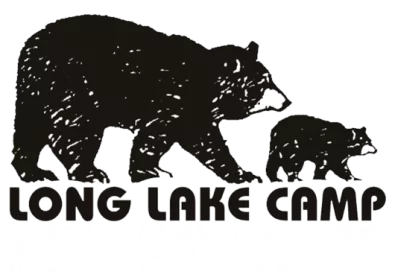Sustainability
Eco-Friendly Summer Camp Experience
The Heart of Long Lake Camp Adventure’s sustainability program the farm area. We have an abundance of animals that campers love to take care of and get to know. We have 4 adorable little bunnies named Ted Bunny, Mufasa, Chewbacca, and John Wayne Fluffy. 2 goats named Micky and Malory. 2 beautiful magnolia pigs named Petunia and Jerry. We also have 6 chickens, 7 horses, 1 pony, and you can’t forget about the wonderful wildlife of the Adirondacks that often pass by. Campers help feed, bathe, and all around take care of these animals all while learning something valuable.
Campers can also spend their days in our fantastic garden. Every summer we add a little something to it and over the years, the garden has grown from a small patch, to marvel of modern sustainability. We have a great irrigation system in place, a pond, beautiful artwork made by campers, an “earthship” made from 100% recycled materials and powered by solar panels, and of course an abundance plant-life and vegetation. Campers can grow whatever they like and then help harvest our crops which we use for pur camp barbecues and campfire cooking classes!
Eco-Friendly Summer Camp Activities and Learning Experiences
At Long Lake Camp Adventures, our sustainability camp offers a range of hands-on eco-friendly summer camp activities designed to teach kids about the environment while fostering a deep connection with nature. Here’s a glimpse into the activities and experiences that make our summer sustainability camp unique:
- Farm and Garden Camp: Campers get their hands dirty in our organic garden, learning the principles of sustainable farming, from planting crops to composting and harvesting rainwater. This environmental education camp experience helps kids understand the cycle of food production and the importance of organic farming.
- Nature Education Camp: Campers explore the local environment, studying Adirondack wildlife, ecosystems, and natural resource conservation. This nature education camp emphasizes the balance between human activities and the environment, teaching teens how they can contribute to preserving natural spaces.
- Renewable Energy Projects: At our environmental learning center summer camp, teens engage with solar power and renewable energy systems, learning how to power their environment sustainably. Campers will see firsthand how solar panels work and how renewable energy can be integrated into daily life.
- Animal Care and Stewardship: Our farm and garden camp includes taking care of animals such as goats, chickens, and pigs. Campers gain valuable skills in animal husbandry and learn about the role of animals in sustainable farming.
- Eco-Friendly Crafts and Recycling Projects: Campers participate in creative workshops using recycled materials to make eco-friendly crafts. These projects promote sustainability and help teens understand the value of reusing and repurposing materials.
- Outdoor Adventures: From hiking to nature walks, our summer sustainability camp teens will experience the natural beauty of the Adirondacks while learning about local flora and fauna. These activities foster a deep appreciation for the environment and its preservation.
By combining education, hands-on activities, and outdoor exploration, our summer sustainability camp gives teens a practical understanding of sustainability and environmental stewardship, preparing them to be the eco-conscious leaders of tomorrow.
Why Choose Our Sustainability Camp for Your Child?
Our sustainability camp offers a unique, hands-on learning experience for your child, focused on environmental stewardship and sustainable living. Here’s why our summer sustainability camp stands out:
- Practical Learning: Campers participate in farm and garden camp activities, where they grow crops, care for animals, and learn about organic farming practices.
- Eco-Friendly Education: At our environmental education camp, teens explore renewable energy, conservation, and eco-friendly practices in a real-world setting.
- Nature-Focused Experience: Through nature education camp activities, campers connect with the environment, studying wildlife and ecosystems while engaging in outdoor adventures.
- Experienced Staff: Our environmental learning center summer camp is led by skilled instructors who guide teens in sustainable living practices, ensuring a safe and enriching experience.
- Impactful for Teens: Summer sustainability camp teens will develop essential skills in environmental stewardship, preparing them to make a difference in the world.
Choose our camp to give your child an immersive and impactful experience that fosters a love for the environment and teaches them the importance of sustainability.
Sustainable Living Lessons at Our Summer Sustainability Camp
At our sustainability camp, campers learn the core principles of sustainable living through hands-on activities. Here’s what they’ll experience:
- Farm and Garden Camp: Campers practice organic farming, composting, and water conservation, gaining practical skills in growing food sustainably.
- Renewable Energy: Learn about solar power and other renewable energy systems at our environmental education camp, empowering teens to understand and apply green technologies.
- Nature Education: Through nature education camp activities, campers explore ecosystems, wildlife, and conservation, fostering a deeper connection to the environment.
- Eco-Friendly Practices: Our eco-friendly summer camp teaches sustainable practices like recycling, waste reduction, and sustainable resource management.
Our Commitment to Sustainable Living
Our Commitment: We are 100% solar powered and grow more fruits and vegetables each year as we teach about farming. We feed our crops with our own organic compost and collected rainwater, and we even incorporate recycling into some of our art projects. Contact us to learn more about how our nature camp is striving to make a difference and teach the next generation about environmental alternatives.
FAQs
Is this sustainability camp suitable for beginners?
Yes, our sustainability camp is perfect for beginners. Campers of all experience levels can participate in activities like gardening, composting, and animal care, with hands-on guidance from our experienced staff.
What makes Long Lake’s sustainability camp unique?
What sets us apart is our eco-friendly summer camp approach, combining farm and garden camp activities, solar energy projects, and nature education camp lessons in a real-world setting. Our campers engage directly with sustainable living practices in New York’s Adirondack wilderness.
Are the sustainability activities hands-on?
Yes, all activities are hands-on. From growing organic crops to caring for livestock and building renewable energy systems, campers actively participate in environmental education camp projects that teach sustainable living practices.
Do campers interact with animals at the nature education camp?
Yes, campers interact with a variety of animals at our farm and garden camp. They help care for goats, chickens, pigs, and more, learning about animal husbandry and how animals contribute to sustainable farming.
How does the camp promote eco-friendly living?
We promote eco-friendly living by teaching sustainable practices like composting, rainwater harvesting, and using solar power. Our environmental learning center summer camp incorporates these practices into daily activities, providing real-world applications for sustainable living.
What kind of gardening is done at the sustainability camp?
Campers engage in organic gardening, where they learn about planting, maintaining, and harvesting crops. They also learn about crop rotation, composting, and how to grow food sustainably without the use of harmful chemicals.



